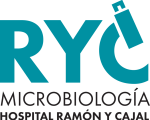evodynamics lab
Evolutionary dynamics of antibiotic resISTANCE
What drives the evolution of antibiotic resistance? How does resistance spread in bacterial populations? Can we predict the evolution of antibiotic resistance? We are tackling these and other questions in the Evolutionary Dynamics of Antibiotic Resistance Lab, located at the Ramón y Cajal Institute for Health Research (Ramón y Cajal University Hospital) in Madrid.











